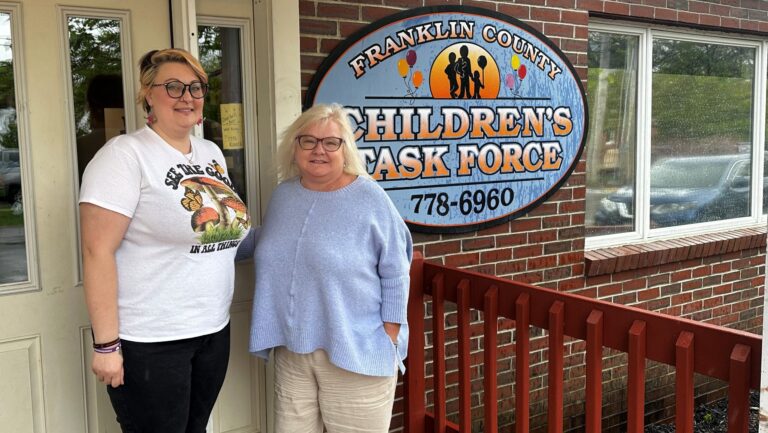By Senior Program Associate Jennifer Beck, Ph.D.
The pandemic revealed the fragility and weaknesses of many of our society’s most critical systems – including a child care system that was already operating on razor thin margins and unable to meet demand. As the country went into lockdown in March 2020, many families lost access to the child care they had relied on, putting into sharp focus the critical role this service plays in ensuring that parents can work, children can learn, and the economy can thrive.
With many pandemic restrictions now lifted, challenges remain for providers and families. But there is also opportunity to rebuild the child care system in a way that works better for Maine families. Some efforts already underway show promising routes forward.
Maine’s Child Care Challenges – Before and During the Pandemic
Even before the onset of the pandemic, Maine’s child care system was very fragile. In early 2020, Maine’s system was being characterized as having limited availability, lacking affordability, and a provider workforce characterized by low wages and high turnover.
COVID-19 further exposed the need to strengthen the child care system, especially in rural areas where gaps in child care are the greatest. Child care providers – many of which are small businesses owned by women – have been hit hard by the pandemic and are struggling to continue to provide essential services. In the presentation below, we review some of the data behind these challenges.
Throughout the pandemic, multiple federal and state supports have been deployed to stabilize Maine’s child care industry, resulting in a 95% business retention rate for the sector. Taken together, the federal funding from the coronavirus response laws totals more than $168 million. While this level of funding is significant, it is important to note that these funds are primarily one-time cash infusions intended to stabilize a system that is currently operating at a net loss due to temporary increased costs and decreased revenue.
Strategies to Strengthen the Child Care System Post-Pandemic
While the stimulus resources have undoubtedly kept the child care industry from a near total collapse, there remains a need for significant innovation and advocacy to rebuild the child care system in a way that better meets the needs of working families.
In alignment with the strategic goals of the Maine Children’s Cabinet – a collaboration of multiple state agencies with a goal of strengthening Maine’s early education system – there are three major priorities to guide these needed reforms:
- Increase access to affordable early care and education.
- Increase the quality of our early care and education programs.
- Recruit, prepare, and retain a diverse early childhood workforce.
Below, we will outline current efforts that present promising models for making progress toward each of these goals.
1. Increase access to affordable early care and education.
One example of the innovation we need to increase child care access can be found in the work of the CEI Child Care Business Lab. The cohort-based model pairs technical child care training with business assistance to help entrepreneurs launch their own licensed child care facilities. After a successful first year in a pilot for rural communities, the John T. Gorman Foundation has provided a grant to create a new cohort in Lewiston’s Tree Streets Neighborhood.
The Child Care Business Lab is designed to help those who are interested in starting a child care facility navigate the challenges of becoming licensed and running a business. Over the course of 10 intensive workshops, participants develop their early childhood education programming, are guided through the licensure process, and learn the fundamentals of operating a business. Along the way, they receive one-on-one assistance from a business advisor and coaching from experienced child-care mentors. Importantly, participants learn as a cohort, so they can develop relationships among like-minded peers who can support each other after the program concludes.
By the end of the six-month pilot program last fall, participants had successfully mapped out visions for their services, translated those visions into the policies they would need to get licensed, and written the business plans they would need to get financing.
2. Increase the quality of our early care and education programs.
In addition to innovative models that promote increased access and affordability, it is important to build out strategies that increase the quality of early learning programs with a focus on social and emotional development.
Responding to this need, Maine has launched an early childhood consultation program at five pilot sites throughout the state using a model with a track record of success – the Connecticut Early Childhood Consultation Partnership (ECCP). The ECCP pairs early childhood educators with early childhood mental health professionals to increase their capacity to support children’s social, emotional and behavioral health.
Models such as ECCP may prove to be instrumental in building early childhood educators’ capacity to support children and families as they transition out of the pandemic and back to work and child care. The outcomes of the Maine pilot should produce valuable insights on this strategy’s effectiveness.
3. Recruit, prepare, and retain a diverse early childhood workforce.
A third critical area for rebuilding our child care system is recruiting and retaining a diverse and qualified early education workforce. Over the last year, the Maine Association for the Education of Young Children (Maine AEYC) T.E.A.C.H. program has shown some positive results on this front.
T.E.A.C.H. helps individuals in the child care field attain post-secondary degrees in Early Childhood Education by offering scholarships and other supports to reduce barriers to degree attainment. In the first six months of the program, 12 scholarships were provided. T.E.A.C.H. is funded and supported by the Maine Department of Health and Human Services Office of Child and Family Services and there is the potential to increase the scale in the future.
Conclusion
The pandemic revealed the fragility of our nation’s child care system and pushed our system here in Maine to the brink. Due to the significant federal and state funding made available through multiple relief packages, Maine’s child care system has stabilized, but is serving reduced numbers of children at higher costs. Furthermore, families across the state lost access to their child care programs with the permanent closure of 122 programs, as of June 2021.
Even with these challenges, there are still opportunities to rebuild Maine’s child care system in ways that ensure that all Maine families have access to affordable and high-quality care. While this may be a daunting task, it is a critical one for our state and families.


